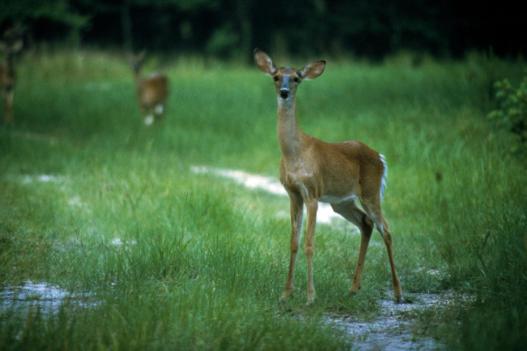October 2023 Edition | Volume 77, Issue 10
Published since 1946
National Academy of Sciences Will Review CWD Transmission and Spread
An ad hoc committee of experts appointed by the National Academies of Sciences, Engineering, and Medicine will review the state of knowledge about modes of transmission and means of geographic spread of chronic wasting disease (CWD) among free-ranging and captive populations of cervids in the United States.

Chronic wasting disease (CWD) is a fatal prion disease affecting the central nervous systems of cervids, such as deer, elk, reindeer, sika deer, and moose. Prion diseases are caused by the abnormal folding of the prion proteins that form clumps in the brain. The disease was first detected in Colorado in 1967 and is thought to spread among cervids through contact with saliva and other fluids. It is now found in more than 26 states and two Canadian provinces.
Specifically, the committee will draw conclusions about the state of knowledge regarding:
- The infectious dose of CWD and different modes of disease transmission among cervids;
- The means of geographic spread through cervid dispersal, scavenger activity, and human actions;
- The effectiveness of interventions to reduce transmission and/or geographic spread of the disease; and
- The population-level and economic impacts of CWD and the effectiveness of different interventions to reduce those impacts.
The committee will write a report that addresses these points based on its review of published and in-progress research on CWD.
WMI’s Matt Dunfee will be part of the review group. Matt also coordinates the Chronic Wasting Disease Alliance for WMI and its partners. The Chronic Wasting Disease Alliance, established in 2002, is dedicated to providing scientifically valid CWD information, including FAQs, recommendations for hunters, CWD management strategies, ongoing CWD research, and more. The alliance seeks to help control the spread of CWD and limit its effect on cervids.